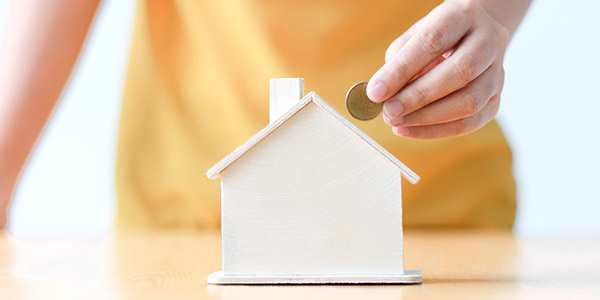Homeowners
Paying Off Your Mortgage Quicker Can Be Done
January 19, 2016
Buying a home means many things for people and families across the U.S. For many of them, taking out a mortgage is necessary to help pay for the home. According to NerdWallet, mortgages are one of the top three sources of household debt. The average American in October 2015 had a mortgage debt of $155,361. Altogether, Americans with mortgages owe $8.09 trillion.
According to the Consumer Protection Finance Bureau, 6 million mortgages were taken out in 2014. U.S. & World News Report reported about one-third of homeowners own their homes completely and don't have to worry about mortgage payments anymore.
For the remaining two-thirds, whether it is five years or 25 years away, a mortgage-free life is likely one of their major goals. Many wish to rid themselves of debt as soon as possible. This goal is achievable with some strategy and discipline. Here are several ways to pay off a mortgage quickly.
Refinance the Loan
Most lenders will allow homeowners to refinance their loan after 12 months, according to MortgageCalculator.org. When you refinance, you sign on to a new mortgage. A homeowner opting to refinance a home to pay off the mortgage quicker ideally chooses a lower interest rate.
According to Realtor.com, with some strategy and discipline, a 30-year mortgage can be paid off easily in 22 years by taking advantage of market changes and refinancing opportunities.
In the model laid out by Realtor.com, a homeowner would refinance three times throughout the loan, each time choosing an interest rate of 0.25 percent or lower than the current rate. The homeowner will then have the option to have lower monthly payments. However, payments are made at the original amount indicated by the mortgage before the first refinancing.
According to the Consumer Protection Finance Bureau, the number of people who refinanced their homes in 2014 dropped 55 percent from 2013. This is likely because, in 2012 and 2013, many homeowners opted to choose lower interest rates, thus reducing the need to refinance again in 2014. However, refinancing isn't a necessary step to begin making higher payments than is required.
Dave Ramsey, a financial writer who focuses on helping people get out of debt, suggested that those who don't yet qualify for a refinance or don't want to pay for one make larger payments anyway.
Use the mortgage payment calculator to calculate the monthly payments needed to pay off a loan in a different period. If you can afford to make those payments, then do so. It might take some financial discipline during the mortgage, but once the mortgage is paid off, you will likely save a sizeable amount of money.
Paying Extra
Some homeowners may be interested in making larger payments to shorten the life of the loan, but making the switch to paying off a 30-year mortgage in 15 years is too drastic a change. In this case, simply rounding payments up to the next even dollar amount is a smaller, more manageable change that can help to begin shaving time off the mortgage, Real Simple said. It won't cut the life of the loan in half, but it will save some time and money in the long run. Homeowners can begin doing this, then reassess their situation later on to see if even larger payments are feasible for them.
Mortgage payments are typically done on a monthly basis. However, many people are paid more frequently than once a month. Semi-monthly and bi-weekly payments are two common paycheck schedules employers use, Entrepreneur explained. This typically runs parallel to the schedule of many people's bill cycles.
To begin paying off a mortgage faster, homeowners can ask about bi-monthly payments. With this method, payments will be made around the same time you get paid. Through bi-monthly payments, rather than making 12 full mortgage payments a year, you will make 26 half-payments a year. According to Bankrate.com, this could reduce a 30-year mortgage by up to six years.
Homeowners who decide to try this option out should keep in mind that twice a year, three payments will be made in a month, Real Simple advised. This is because there are 52 weeks in a year and the payments will be made every other week. It's best to know when this will occur and ensure there are enough funds in the account from which payments are drawn.
Real Simple explained lenders will charge about $250 or more to change the payment schedule. However, Bankrate.com suggested talking to the bank from which the payments are sent first. Some banks can arrange auto-payments for free, eliminating the need to work with a lender to accomplish this strategy.
Another strategy is to put large amounts of extra money toward the loan. For instance, some employees are awarded holiday bonuses. Putting this one-time payment toward the mortgage will help to pay it off quickly.
"This is one of the best strategies you can employ because you're not required to make a higher monthly payment," Keith Gumbinger, vice president of the mortgage information website, HSH.com, explained to Real Simple. "And you didn't count on having the money in the first place, so you won't miss it."
Paying off a mortgage early has many advantages. U.S. & World News report explained many do this to reach financial freedom earlier than expected, making life goals such as travel or opening a small business more attainable. Others do this to begin saving more money for retirement. Whatever the reason, paying off debt quicker is never a bad thing. With these tips, reducing your mortgage lifespan is a realistic goal many homeowners can achieve.





 Smart Moves Start Here.
Smart Moves Start Here.